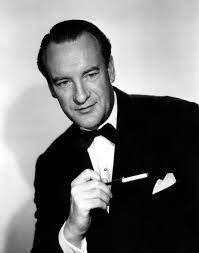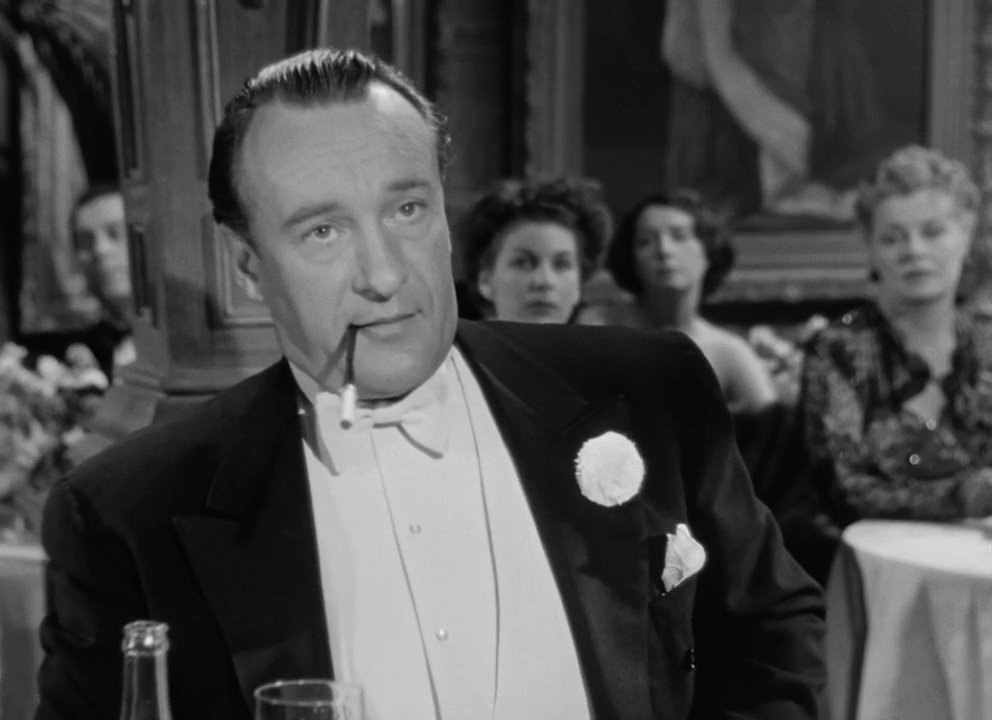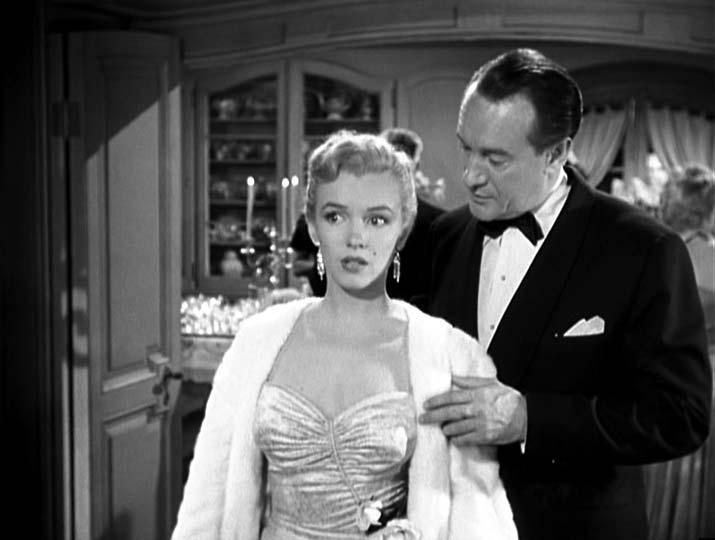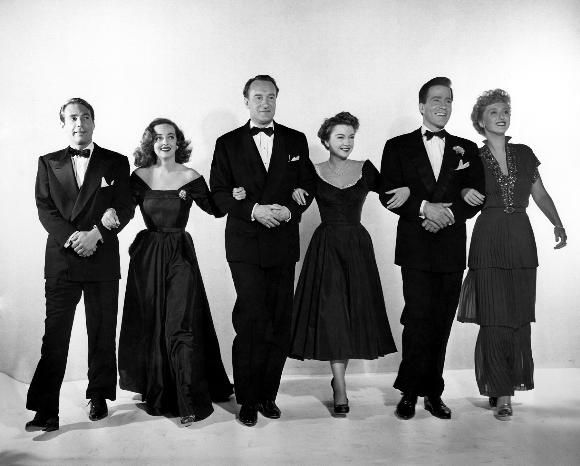A series by Christopher James looking at the 'Gay Best Friend' trope
SERIES FINALE (for now)
 She's the bitch who always has the tea... Addison DeWitt.All good things must come to an end (or extended hiatus). Over the past year, we’ve covered 42 examples of the gay best friend spanning from 1955 to 2021. Don’t worry, I’ll be starting a new column very shortly, so you haven’t seen the last of me. However, we are going out in fabulously bitchy style with our final entry. Not only is this our oldest entry, but it’s also the only Gay Best Friend that earned the actor in question an Oscar statue. Needless to say, George Sanders’ Best Supporting Actor win for the gossip columnist Addison DeWitt in All About Eve is one of the best wins in the category.
She's the bitch who always has the tea... Addison DeWitt.All good things must come to an end (or extended hiatus). Over the past year, we’ve covered 42 examples of the gay best friend spanning from 1955 to 2021. Don’t worry, I’ll be starting a new column very shortly, so you haven’t seen the last of me. However, we are going out in fabulously bitchy style with our final entry. Not only is this our oldest entry, but it’s also the only Gay Best Friend that earned the actor in question an Oscar statue. Needless to say, George Sanders’ Best Supporting Actor win for the gossip columnist Addison DeWitt in All About Eve is one of the best wins in the category.
The central premise of All About Eve is a tale as old as time. Aging Broadway star Margot Channing (Bette Davis) meets an adoring fan one night named Eve Harrington (Anne Baxter). Margot bonds with Eve over her favorite topic… herself. She eventually giving her employment in the theater. Soon, the much younger Eve starts to get greedy, taking some of Margot’s spotlight as the new, younger face of the theater...
Suddenly, the grand dame Margot must figure out how to stop from being phased out by the younger model. Chronicling it all is gossip columnist Addison DeWitt (Sanders), proving the pen is mightier than the sword.
 Who doesn't love a movie that opens at an awards show?
Who doesn't love a movie that opens at an awards show?
Addison DeWitt: [voiceover intro] To those of you who do not read, attend the theater, listen to unsponsored radio programs, or know anything of the world in which you live, it is perhaps necessary to introduce myself. My name is Addison DeWitt. My native habitat is the theater. In it, I toil not, neither do I spin. I am a critic and commentator. I am essential to the theater.
Addison is more than just the supporting player in the war between aging actress Margot Channing (Bette Davis) and young upstart Eve Harrington (Anne Baxter), he’s the narrator. Like so many of us on this site, we as queer people choose feuding actresses as our avatars. Unlike most of us, he has direct access to these actresses and becomes an integral member in their friendship and quarrel. So many examples of the Gay Best Friend trope have placed the character on the fringes of the conflict, merely commenting on the proceedings or “slapping some sense” into the female protagonist. If anything, over the course of All About Eve, Addison preys on Margot’s inflated ego and lack of sense. By introducing the movie, writer/director Joseph Mankiewicz is framing the story from Addison’s POV. Actresses need an audience, and Addison is happy to be that for Margot and Eve.
 Addison had great taste in stars. "All About Eve" was one of the first roles for Marilyn Monroe.
Addison had great taste in stars. "All About Eve" was one of the first roles for Marilyn Monroe.
Addison DeWitt: We all have abnormalities in common. We're a breed apart from the rest of humanity, we theatre folk. We are the original displaced personalities.
The movie never confirms Addison’s sexuality, it is 1950 after all. The coding of the character is simultaneously more subtle and ostentatious at the same time. George Sanders could’ve easily played Addison all limp wrists, swishy and flamboyant. It’s not that Addison isn’t all of those things, he can be. He just colors these elements with a headsure confidence. The above line uses “theater” as a way to nod to his queerness. Yet, even when referencing “abnormalities,” he expresses a kinship with the people around him. He’s found his tribe where he can be himself. Even though he is at odds with almost every character at a different point in the narrative, he feels warmth and love coming from their barbs. After all, Margot only shows her love through quips.
When he walks into Margo’s party with Miss Casswell (Marilyn Monroe), she understands that he can be the person to make or break her career. The fawning isn’t a case of misreading cues. She wants something that he can give her. His column and support could make her a big star. Thinking about the other queer coded characters we covered in this series (Plato in Rebel Without a Cause; Sebastian in Suddenly Last Summer), they’re defined by their trauma or their fatal outcomes. Here, Addison not only gets to live, but he gets to thrive on his own terms. There are still limits to what a movie at that time can show in terms of Addison’s inner life. He often appears sexless, rather than having urges for the same sex. Still, he’s given plenty of drive and perspective to make up for that.

Addison DeWitt: That I should want you at all, suddenly strikes me as the height of improbability. But that, in itself, is probably the reason. You're an improbable person, Eve, and so am I. We have that in common. Also, our contempt for humanity and inability to love, and be loved, insatiable ambition, and talent. We deserve each other.
The climax of the film takes place between Addison and Eve, after their diabolical plan has seemingly worked. Even in success, both of these sharks can’t help wrestle for power and credit from the other. In this confrontation, an unspoken truth is confirmed, even if it is still just inference. Eve thinks of Addison as a pawn in her quest for fame. He’s a faithful worker who will admire, adore and work for her. In short, she underestimates him. Being a swishy gossip columnist, Addison has likely spent most of his life being underestimated. What Addison has that Eve doesn’t have is perceptiveness. He knows Eve’s scheme as well as he knows his own. In fact, he sees their common traits (including their shared queerness). Their “contempt for humanity and inability to love” stem from the improbability of their love to exist openly in society. While Eve suppresses these urges, Addison stays honest with his feelings. He knows who he is and how the world sees him. This doesn’t depress him, this is where he derives his power.
 Name a more iconic cast... I'll wait.
Name a more iconic cast... I'll wait.
There are so many queer readings of All About Eve. It’s head to toe queer. Eve’s obsession with Margot is tinged with palpable sexuality. The dynamic is repeated again at the end as Eve finds one of her fans in her hotel room. As Addison says earlier, the movie is filled with “displaced personalities,” these people who build their lives around success, awards, admiration and power. It’s a timeless piece of cinema that only gets more progressive and pointed as time passes. Seventy years later, few queer characters are written with as much depth or performed with as much power than George Sanders’ Addison DeWitt.
Previously in Gay Best Friend
pre stonewall
post stonewall
-
Bernstein (Antonio Fargas) in Next Stop, Greenwich Village (1976)
-
Toddy (Robert Preston) & Squash (Alex Karras) in Victor/Victoria (1982)
1990s and the 2000s
-
Hedra Carlson (Jennifer Jason Leigh) and Graham Knox (Peter Friedman) in Single White Female (1992)
-
Gareth (Simon Callow) and Matthew (John Hannah) in Four Weddings and a Funeral (1994)
-
George Downs (Rupert Everett) in My Best Friend’s Wedding (1997)
-
George Hanson (Paul Rudd) in The Object of My Affection (1998)
-
Stanford Blatch (Willie Garson) in Sex and the City (1998 - 2010)
-
Wallace Wells (Kieran Culkin) in Scott Pilgrim vs the World (2010)
The Now
-
Patrick (Ezra Miller) in The Perks of Being a Wallflower (2012)
-
Jack Hock (Richard E. Grant) in Can You Ever Forgive Me (2018)
-
Artie (John McCrea) in Cruella (2021) and other “First Disney LGBTQ+ Characters (2013-2021)
Who is your favorite (or least favorite) example of a “gay best friend” in movies? Let us know in the comments below.